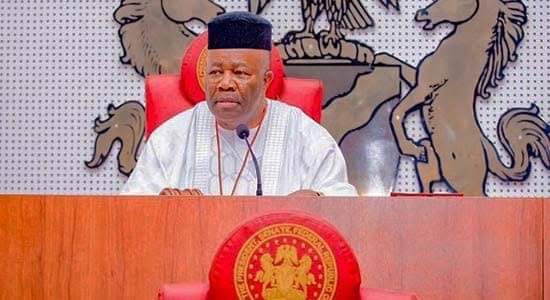EFCC Is Exploring Other Ways To Bring Wanted Yahaya Bello Out
The Economic and Financial Crimes Commission (EFCC) has reiterated its position that Yahaya Bello, the former governor of Kogi State, remains a fugitive and has been officially declared wanted.
Bello, who is currently facing trial, is implicated in a staggering N80 billion fraud case.
The EFCC’s declaration follows what the commission describes as Bello’s continuous evasion of justice. Despite multiple court summons and attempts by law enforcement to bring him into custody, the former governor has remained out of reach.
According to the EFCC, the allegations against Bello involve the misappropriation of public funds during his tenure as governor of Kogi State.
Speaking on a breakfast show with New Central, EFCC Head of Media and Publicity, Dele Oyewale, stated that no case before the court is swept under the carpet.
According to Oyewale, the EFCC has already brought the matter before Justice Emeka Nwite of the Federal High Court in Abuja.
He described the ongoing court proceedings as a vindication of the EFCC’s stance that Yahaya Bello must be tried.
Oyewale stated that the recent ruling by the Court of Appeal only amplifies the EFCC’s position and underscores that the commission is fully committed to pursuing the case.
“It is not as if we are lying low or doing nothing,” he said.
“We are relying on the appropriate provisions of the law to bring him to justice, and that is what is currently unfolding.”
He said that Yahaya Bello had been scheduled for arraignment, but had managed to evade court appearances, having snubbed six sessions.
Oyewale explained that while there may be delays in resolving some cases due to procedural issues, processes, and adherence to the rule of law, it is incorrect to claim that the agency’s cases are being ignored.
“All of our cases are receiving the rightful attention at every level of our courts,” Oyewale asserted.
“If there is a delay, it will be resolved. We have taken this matter to court.”
He also noted that the EFCC’s mandate is to investigate and prosecute but not to adjudicate, as that responsibility lies with the judiciary.
“The commission has made about six court appearances in this case, and the court is doing its rightful work. We only need to be patient and have faith in the judicial process and the work of the EFCC,” he said.
Oyewale expressed confidence that justice will be served in this case and urged patience from the public.
When asked about the possibility of issuing an arrest warrant, Oyewale confirmed that a warrant had indeed been issued, enabling the agency to attempt an arrest, although Bello has so far evaded arrest.
“We declared him wanted, which is the standard procedure in law enforcement when a suspect fails to present themselves for arrest. We have even drafted 19 charges against him and taken the matter to court,” Oyewale stated.
He reiterated that both Yahaya Bello’s lawyers and EFCC lawyers are still meeting in court.
“We must understand how the judiciary works. It is not enough to declare a suspect wanted and issue a warrant of arrest,” he said.
“The EFCC is actively working to ensure the warrant of arrest is executed, even as Yahaya Bello remains at large. The commission is exploring other ways to bring him to justice.”
“When a suspect is declared wanted, it becomes the responsibility of every law enforcement agency to bring him to justice,” he said.
“As it stands, Yahaya Bello cannot appear in public.”
He explained that all local and international law enforcement agencies are involved, and when Bello is eventually arrested, the public will be informed.
“We are not going to reveal too much about our processes, procedures, and intelligence efforts. The essential goal is to bring him to justice,” Oyewale said.
Responding to concerns about public trust in the EFCC, Oyewale acknowledged the challenges but pointed to the commission’s record of convictions, recoveries, and successes in the fight against corruption as evidence of their credibility.
“We are confident in the integrity, professionalism, and effectiveness of the EFCC,” he said. “Yahaya Bello is just one of many cases we are resolving, and he will be brought to Justice,” he said.














































